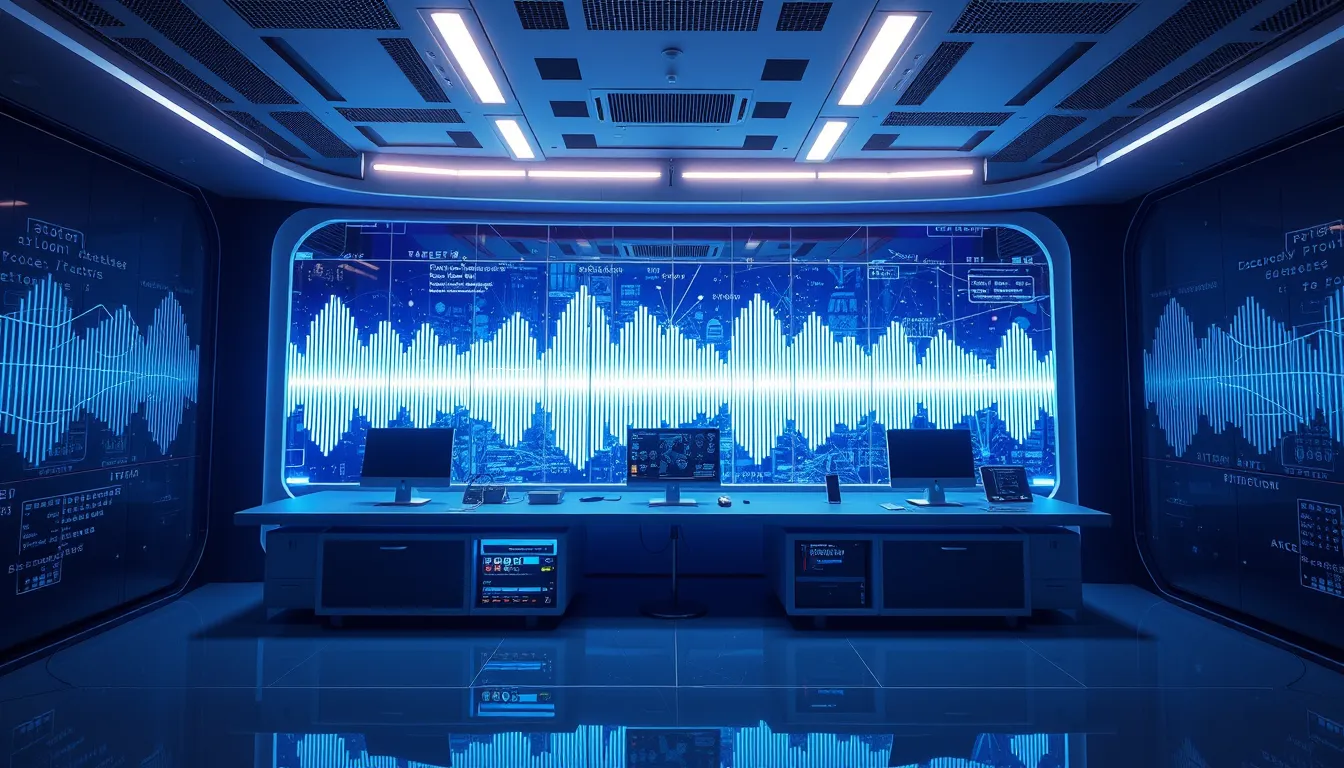Now Reading: UK AI Energy Council: Driving Smart Energy Transformation
-
01
UK AI Energy Council: Driving Smart Energy Transformation
UK AI Energy Council: Driving Smart Energy Transformation

UK AI Energy Council: Driving Smart Energy Transformation
The rapid evolution of artificial intelligence is set to reshape numerous sectors, and the energy industry is no exception. With the formation of the AI Energy Council, the United Kingdom is taking a giant leap forward in integrating AI in energy systems to create smarter, more efficient frameworks. This initiative fortifies the nation’s ambition for a sustainable net-zero economy and demonstrates a forward-thinking approach to renewable energy AI and smart grid technology.
An Overview of the AI Energy Council Initiative
In a bold move to bridge the gap between technology and environmental sustainability, the AI Energy Council has been established to serve as a strategic platform where government officials, industry experts, and leading academic researchers collaborate. The Council’s mission is clear: harness cutting-edge AI solutions to not only optimize current energy systems but also to innovate new methods that enhance the efficiency and reliability of renewable energy projects. This approach aligns closely with the core objectives of UK AI energy strategies and further underscores the commitment to a sustainable future.
How AI Optimizes Renewable Energy Projects
One of the most promising aspects of the Council’s mandate is exploring how AI optimizes renewable energy projects. By leveraging vast amounts of operational data, AI systems can predict maintenance needs, optimize energy production, and allocate resources more effectively. This integration supports the long-term vision of a system-wide smart grid that minimizes energy loss and maximizes output. Key benefits include:
- Enhanced operational efficiency
- Lower operational costs
- Improved energy management and forecasting
These improvements are vital as the UK energy market continues to evolve, with the goals of reducing carbon emissions and achieving higher energy security.
Integrating AI for Smart Grid Efficiency
The integration of AI for smart grid efficiency is a critical focus area for the AI Energy Council. Smart grids, empowered by AI, are transforming the way energy is distributed and managed across urban and rural areas alike. The use of advanced algorithms and real-time data analytics in smart grid technology enables a dynamic balancing of supply and demand. This not only optimizes energy flow but also makes the grid more resilient to disruptions.
The potential of smart grid technology can be summarized in these key points:
- Real-time monitoring and automated responses
- Predictive maintenance and resource allocation
- Enhanced security and operational transparency
For those interested in learning more about how smart grid technology is revolutionizing energy distribution, further insights can be found on the UK Government’s official departments such as the Department for Business, Energy & Industrial Strategy.
Paving the Way to a Net-Zero Economy
Another crucial dimension of the AI Energy Council’s work is its role in the transition towards a net-zero economy. The advancements in AI in energy are not just confined to optimizing current infrastructures—they are laying the groundwork for a future where renewable energy forms the backbone of national grids. This transformation involves adopting sustainable energy solutions that minimize environmental impact while promoting economic growth.
- Integration of renewable energy sources with traditional grids
- Investment in digital infrastructure for real-time management
- Robust policy frameworks that encourage sustainable practices
By focusing on these pillars, the AI Energy Council is helping to drive policies that support a cleaner, more sustainable energy realm, making the UK a front-runner in the global effort to combat climate change.
Sustainable Energy Solutions and Future Prospects
Sustainable energy solutions are at the heart of the AI Energy Council’s mission. With the dual challenge of meeting increasing energy demands and reducing carbon emissions, the Council is exploring innovative strategies that marry AI with sustainable practices. This involves a deep dive into how AI can further enhance renewable energy installations and improve grid stability, thus ensuring that energy production does not compromise the environment.
Looking forward, several key trends are expected to emerge from the Council’s work:
- Continued advancement in AI-driven renewable energy analytics
- Widespread adoption of smart grid technologies across urban centers
- Strengthened collaborations between policymakers and tech innovators
The future of the UK’s energy sector is bright, with AI paving the way for transformative changes that promise both economic and environmental benefits. The Council’s initiatives act as a blueprint for how technology can be intertwined with sustainability goals, setting a benchmark for other nations and industries worldwide.
Conclusion
In conclusion, the establishment of the AI Energy Council marks a significant milestone in the evolution of the energy sector. By integrating AI in energy, particularly within the realms of renewable energy projects, smart grid technology, and the broader ambition of a net-zero economy, the Council is spearheading a movement toward smarter, more resilient, and sustainable energy practices. As the UK continues to harness the potential of AI, the collective aim remains clear: to create an energy future that is both innovative and environmentally responsible. Through collaboration, innovation, and strategic planning, the AI Energy Council is setting the stage for a new era in energy management and sustainability.

























